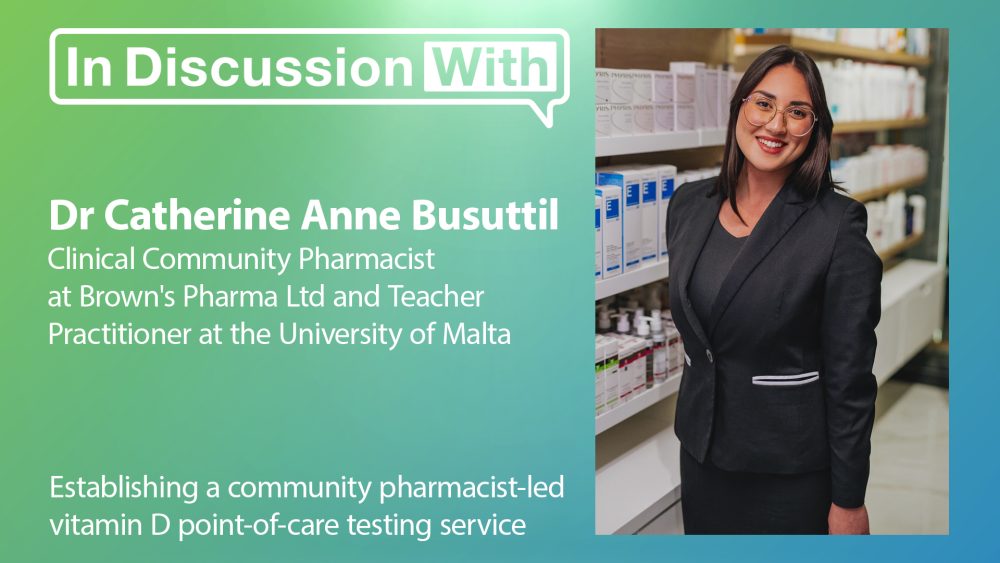Advertisment
Establishing a community pharmacist-led vitamin D point-of-care testing service

Adequate levels of Vitamin D are critical for satisfactory immune function and this has stimulated interest in point-of-care testing (POCT) in community pharmacies. A pilot study has recently demonstrated the feasibility of such a service. In this series of short videos, clinical community pharmacist Dr Catherine Anne Busuttil describes the study and its findings.
Why should vitamin D levels be measured in community pharmacy?
Growing recognition of the role of vitamin D in numerous disease states, beyond bone health and increasing demand for vitamin D supplementation to boost immunity during the coronavirus pandemic were two factors that led the researchers to select vitamin D POCT as an area for study, says Dr Busuttil. In particular, the absence of readily accessible, inexpensive, non-invasive, quick and reliable methods of vitamin D assessment sparked her interest.
A total of seven POCT devices were appraised and the Acro Biotech Inc. Vitamin D rapid test, which gives a semi-quantitative result, was selected. The device was validated against the standard high performance liquid chromatography tandem mass spectrometry (HPLCMS) laboratory method.
What point-of-care testing for vitamin D levels tells us
The pilot study in a community pharmacy included 80 participants. Some 49 participants had ‘insufficient’ and eight had ‘deficient’ vitamin D levels.
“In Malta serum [25-hydroxyvitamin D (25D)] reference ranges follow those proposed by the Endocrine Society in the USA. Their guidelines state that 30 nanograms per millilitre are considered adequate levels, between 20 to 30 nanograms per millilitre are regarded as insufficient levels and below 20 nanograms per millilitre are deemed deficient”, explains Dr Busuttil.
The recommended daily dose of vitamin D supplementation (in Malta) is 800 to 2,000 International Units. Despite the fact that 38 participants were taking vitamin D supplementation, only 23 participants were found to have ‘sufficient’ levels of vitamin D and there was no statistical association between the two variables. Possible reasons for this include underdosing of vitamin D supplementation, short duration of vitamin D supplementation and issues related to vitamin D malabsorption.
The next phase of this study will involve evaluation of the implementation of the Vitamin D POCT service within a community pharmacy, says Dr Busuttil.
About Catherine Anne Busuttil
Catherine Anne Busuttil holds a Master’s degree in Pharmacy and a Doctorate (PharmD) of Pharmacy. As part of her doctoral studies at the University of Malta she undertook research in the area of vitamin D POCT under the supervision of Dr Francesca Wirth and Professor Lillian Azzopardi. She now contributes to the department as a teacher-practitioner for second year pharmacy students in POCT practical sessions and for postgraduate students on community pharmacy rotations.
Read and watch the full series on our website or on YouTube.





